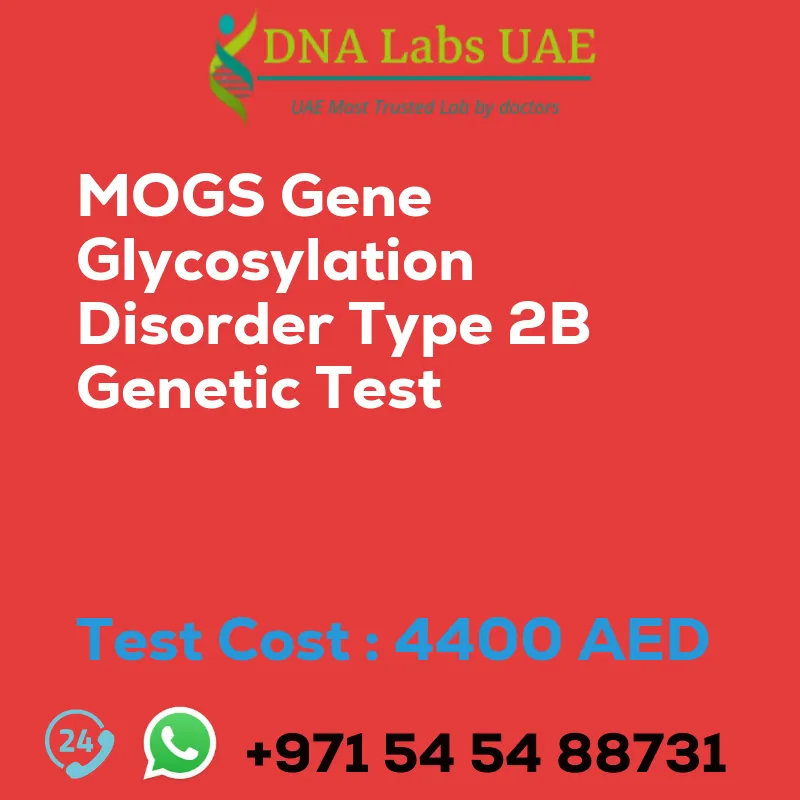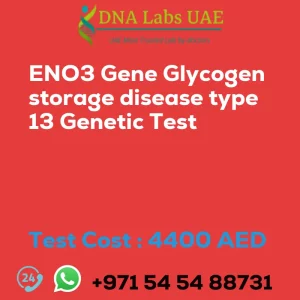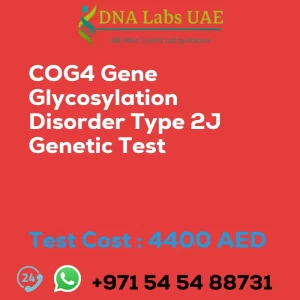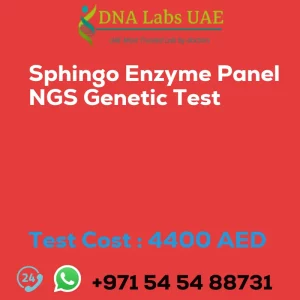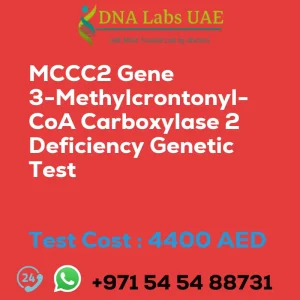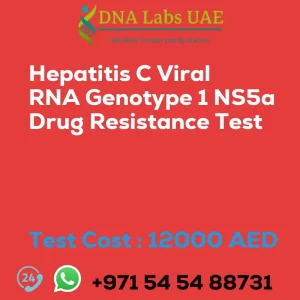MOGS Gene Glycosylation Disorder Type 2B Genetic Test
At DNA Labs UAE, we offer the MOGS Gene Glycosylation Disorder Type 2B Genetic Test to diagnose individuals with this rare genetic disorder. This test helps in understanding the glycosylation process in the body, which is crucial for proper protein and lipid function.
Test Details
The MOGS gene glycosylation disorder type 2B is a rare genetic disorder that affects the glycosylation process in the body. Glycosylation involves the attachment of sugar molecules to proteins and lipids, which is essential for their proper function. Our NGS (Next-Generation Sequencing) technology allows us to analyze multiple genes simultaneously and identify any mutations or variations in the MOGS gene that may be responsible for glycosylation disorder type 2B.
Components
- Test Name: MOGS Gene Glycosylation Disorder Type 2B Genetic Test
- Price: 4400.0 AED
- Sample Condition: Blood or Extracted DNA or One drop Blood on FTA Card
- Report Delivery: 3 to 4 Weeks
- Method: NGS Technology
- Test Type: Metabolic Disorders
- Doctor: General Physician
- Test Department: Genetics
Pre Test Information
Prior to undergoing the MOGS Gene Glycosylation Disorder Type 2B NGS Genetic DNA Test, it is important to provide the clinical history of the patient. Additionally, a genetic counseling session will be conducted to draw a pedigree chart of family members affected by Glycosylation Disorder Type 2B. This information is crucial for accurate diagnosis and treatment planning.
Test Process
The MOGS Gene Glycosylation Disorder Type 2B Genetic Test requires a sample of DNA, which can be obtained through a blood or saliva sample. Our advanced NGS technology will then sequence the DNA to identify any variations or mutations in the MOGS gene. The results of this genetic test can help diagnose individuals with glycosylation disorder type 2B and provide valuable information for their medical management and treatment. It can also be used for carrier testing in individuals with a family history of the disorder.
It is important to note that genetic testing for glycosylation disorder type 2B should be performed by healthcare professionals with expertise in genetics. They can provide counseling and guidance based on the results of the genetic test.
| Test Name | MOGS Gene Glycosylation disorder type 2B Genetic Test |
|---|---|
| Components | |
| Price | 4400.0 AED |
| Sample Condition | Blood or Extracted DNA or One drop Blood on FTA Card |
| Report Delivery | 3 to 4 Weeks |
| Method | NGS Technology |
| Test type | Metabolic Disorders |
| Doctor | General Physician |
| Test Department: | Genetics |
| Pre Test Information | Clinical History of Patient who is going for MOGS Gene Glycosylation disorder type 2B NGS Genetic DNA Test A Genetic Counselling session to draw a pedigree chart of family members affected with Glycosylation disorder type 2B |
| Test Details |
MOGS gene glycosylation disorder type 2B is a rare genetic disorder that affects the glycosylation process in the body. Glycosylation is the attachment of sugar molecules to proteins and lipids, which is important for their proper function. NGS (Next-Generation Sequencing) genetic testing is a type of genetic test that uses advanced sequencing technology to analyze multiple genes simultaneously. It can identify mutations or variations in the MOGS gene that may be responsible for glycosylation disorder type 2B. The NGS genetic test for MOGS gene glycosylation disorder type 2B involves collecting a sample of DNA, usually through a blood or saliva sample. The DNA is then sequenced using NGS technology to identify any variations or mutations in the MOGS gene. This genetic test can help diagnose individuals with glycosylation disorder type 2B and provide valuable information for their medical management and treatment. It can also be used for carrier testing in individuals with a family history of the disorder. It’s important to note that genetic testing for glycosylation disorder type 2B is typically performed by healthcare professionals with expertise in genetics. They can provide counseling and guidance based on the results of the genetic test. |

